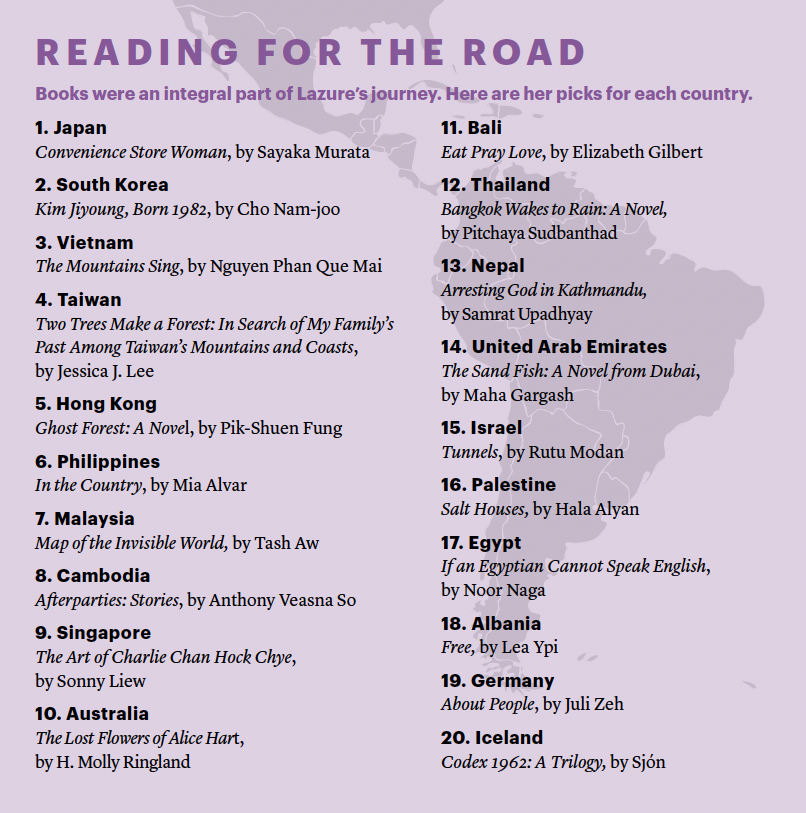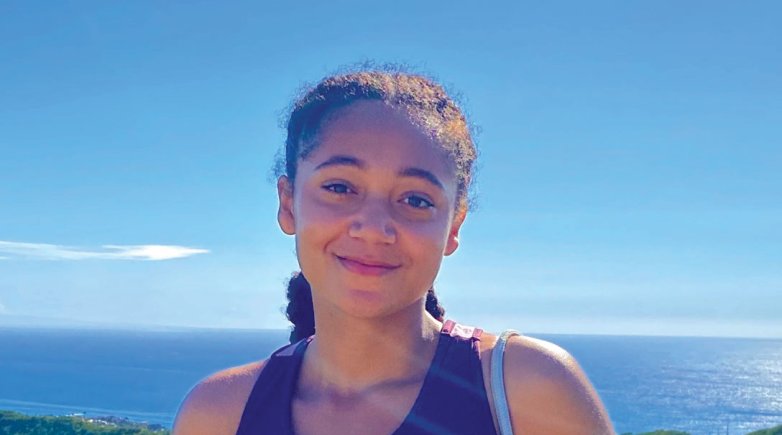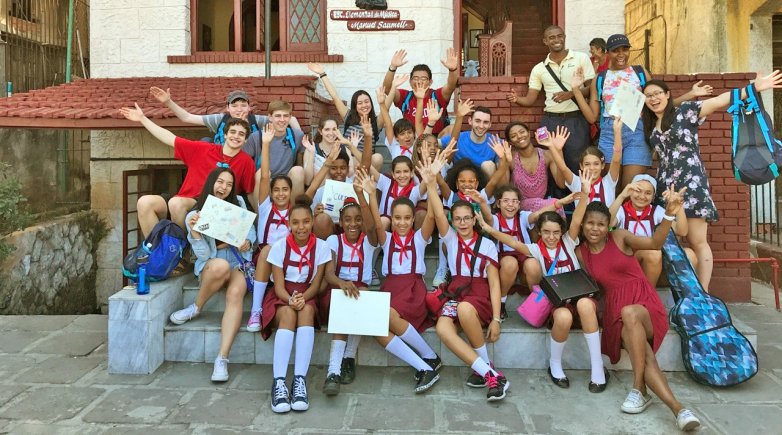
During our planning stages, I always remind my students about the relationship between what you value and how you spend your money. “When you’re paying your own way, you’ll find out pretty quickly what you value most,” I tell them. And the narratives they develop, based on whom they’re bringing, what they’re doing and what they value, never fail to entertain, and inspire: One student, impassioned by lemurs, sought to study them in Madagascar, while another opted to go to London, rent a chauffeured Rolls-Royce and spend a night at the Ritz. Another wanted to see for herself the so-called “snow monsters” in Mount Zao, Japan, while another let a random country generator decide that he’d plan a trip to Azerbaijan.
Beyond the immersive engagement and creativity in these trips, what I love most about this project is its capacity to give our students the tools and knowledge for turning their dreams into reality. How do you turn a “maybe, someday” idea into an actual plan?
It’s no wonder, then, that my students inspired my sabbatical in spring 2023, as I endeavored to realize my “maybe, someday” dream to travel around the world. I had experienced the benefits of traveling with colleagues while visiting different schools and regions of China in 2012; I had spent 2015 teaching English at School Year Abroad in Viterbo, Italy; and I had just returned from chaperoning the Stratford, UK, program in the fall.
I’d been ready to take my first sabbatical in March 2020 (I had lined up two writing residencies in Spain and Portugal), but the pandemic lockdown kept me in Hoyt Hall instead, teaching on Zoom and listening to podcasts while baking sourdough bread and growing a vegetable garden. When the world finally opened up, and I got the OK for my sabbatical in spring 2023, I decided it was time to think big.
In winter 2022, as my students discussed the ways travel transforms both travelers and the places they visit, I was busy spending my weekends hastily hatching my Boston-to-Boston itinerary. I had plans to be in Seattle in March for a writers’ conference, so the trick was figuring out how to get to Asia from the West Coast on a budget.
 Following the literal path of least expensive flights, my itinerary brought me first to Hawaii, then Japan, South Korea, Vietnam, Taiwan and Hong Kong. From there I went to the Philippines, Malaysia, Cambodia, Singapore and Australia. Then I traveled to Bali, Thailand, Nepal, the United Arab Emirates, Israel and Palestine. The last leg of my journey took me to Egypt, Albania and Germany, with a quick stopover in Iceland. In all, fueled by the Academy’s sabbatical stipend and my own savings and paycheck, I visited 20 countries from March through mid-July, 15 of which I’d never visited before. I returned home to Exeter in August, readjusting to my life on campus, teaching English, advising The Exonian and living in Dunbar Hall.
Following the literal path of least expensive flights, my itinerary brought me first to Hawaii, then Japan, South Korea, Vietnam, Taiwan and Hong Kong. From there I went to the Philippines, Malaysia, Cambodia, Singapore and Australia. Then I traveled to Bali, Thailand, Nepal, the United Arab Emirates, Israel and Palestine. The last leg of my journey took me to Egypt, Albania and Germany, with a quick stopover in Iceland. In all, fueled by the Academy’s sabbatical stipend and my own savings and paycheck, I visited 20 countries from March through mid-July, 15 of which I’d never visited before. I returned home to Exeter in August, readjusting to my life on campus, teaching English, advising The Exonian and living in Dunbar Hall.
As far away as I was from campus during my travels, I’d often find a tie right back to Exeter. For example, a Japanese woman I’d met on the China faculty trip welcomed me to Tokyo, and we ventured around the city together to see the cherry blossoms. In Seoul, I was surprised to learn that a woman introduced to me through my cousin had sent her sons to Exeter Summer; in Manila, I had a chance to visit and lead a short workshop with the faculty at the Harkness-inspired Beacon School, founded by Mailin Paterno Locsin and her husband and PEA alum, Andy Locsin ’80, thanks to an introduction from their daughter, Adela Locsin ’13, whom I knew when I lived in Wheelwright. In Taipei, I was welcomed by relatives of my PEA colleague Dr. Szu-Hui Lee, and even the language barrier did not diminish a genuine feeling of mutual joy and care. Meanwhile, another Wheelie, Lily George ’14, and I crossed paths twice, once in Seattle and later in Taipei, where she was continuing to study Chinese. And in Singapore, Casey Lynn Siagian, who had participated in the Summer Writers’ Workshop at Exeter in 2013, met me for a lovely afternoon in the botanical gardens.


 Following the literal path of least expensive flights, my itinerary brought me first to Hawaii, then Japan, South Korea, Vietnam, Taiwan and Hong Kong. From there I went to the Philippines, Malaysia, Cambodia, Singapore and Australia. Then I traveled to Bali, Thailand, Nepal, the United Arab Emirates, Israel and Palestine. The last leg of my journey took me to Egypt, Albania and Germany, with a quick stopover in Iceland. In all, fueled by the Academy’s sabbatical stipend and my own savings and paycheck, I visited 20 countries from March through mid-July, 15 of which I’d never visited before. I returned home to Exeter in August, readjusting to my life on campus, teaching English, advising The Exonian and living in Dunbar Hall.
Following the literal path of least expensive flights, my itinerary brought me first to Hawaii, then Japan, South Korea, Vietnam, Taiwan and Hong Kong. From there I went to the Philippines, Malaysia, Cambodia, Singapore and Australia. Then I traveled to Bali, Thailand, Nepal, the United Arab Emirates, Israel and Palestine. The last leg of my journey took me to Egypt, Albania and Germany, with a quick stopover in Iceland. In all, fueled by the Academy’s sabbatical stipend and my own savings and paycheck, I visited 20 countries from March through mid-July, 15 of which I’d never visited before. I returned home to Exeter in August, readjusting to my life on campus, teaching English, advising The Exonian and living in Dunbar Hall.


